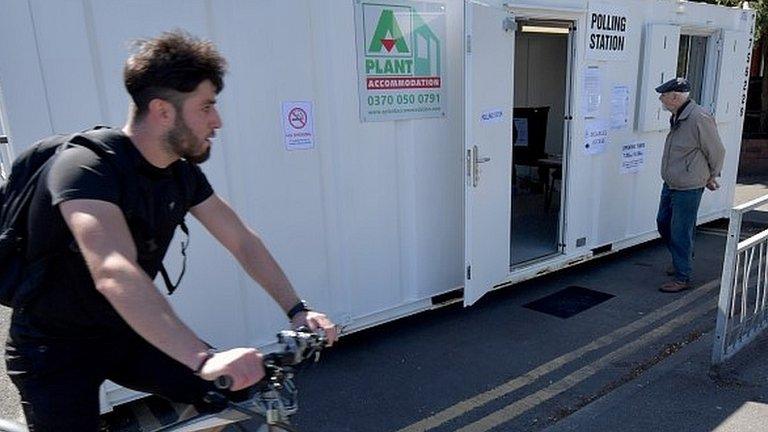General election 2017: Theresa May 'not taking victory for granted'
- Published
Theresa May responds to the Conservatives' success in the local elections
Theresa May has sought to play down talk of a landslide general election victory after the Conservatives made major gains at local elections.
The Tory leader said she would fight for every vote on 8 June to strengthen her hand in Brexit talks.
Labour leader Jeremy Corbyn said his party faced a challenge on a "historic scale" to win back power, but insisted he could close the gap on the Tories.
The Tories gained 500 seats and seized control of 11 councils.
It was the best local election performance by a governing party in 40 years, with the gains mostly coming at the expense of Labour and UKIP, which lost all of its 145 local authority seats.
The Lib Dems increased their share of the vote by 7% but lost more than 40 seats.
Labour was beaten into third place by the Conservatives in Scotland, where the SNP was comfortably the largest party despite failing to take control of target councils.
If the results of Thursday's polls in Wales, Scotland and 32 county councils in England were repeated nationally, the Conservatives would be on 38%, Labour 27%, the Lib Dems 18% and UKIP 5%, according to analysis by polling expert John Curtice.
That would mean a bigger majority for Theresa May but not necessarily the landslide some were expecting, said Prof Curtice, but he also cautioned against reading too much into the results.
The Labour leader says the results in some areas are disappointing, but it isn't all bad news
Mrs May sought to combat any complacency in the Conservative ranks by saying: "I will not take anything for granted and neither will the team I lead, because there is too much at stake."
She added: "The reality is that only a general election vote for the Conservatives in 34 days' time will strengthen my hand to get the best deal for Britain from Brexit."
Mr Corbyn described the local election results as "mixed" for Labour, but insisted his party was "closing the gap" on the Conservatives.
UKIP's Gerard Batten says his party leader is resting after its poor results
"We have five weeks to win the general election so we can fundamentally transform Britain for the many not the few," he said in a statement.
"We know this is no small task, it is a challenge on an historic scale.
"But we, the whole Labour movement and the British people, can't afford not to seize our moment."

Analysis: By BBC Political Editor Laura Kuenssberg
Much could change in the coming weeks of what's likely to be a brutal general election campaign.
Theresa May insists still that the vote could be close, warning her supporters not to take a majority for granted.
The results don't translate necessarily into a big Tory win. But according to those who put crosses in a box on Thursday, the ground is prepared.

Mr Corbyn was greeted on Friday evening by rapturous supporters in Manchester after former Labour minister Andy Burnham was elected mayor of Greater Manchester by a large majority.
Mr Burnham had been at the venue hours earlier but did not return to attend his leader's rally.
Mr Corbyn said: "I have been in touch with Andy to congratulate him and he's already hard at work on behalf of the people of the Greater Manchester region."
BBC political correspondent Iain Watson said a senior Labour figure had described the local election results as "calamitous" but the party had devised a plan to avert disaster on 8 June.
It includes making Mr Corbyn more prominent in the campaign, in the hope that voters will see that he is not like the image portrayed by a "hostile press" - and a renewed emphasis on policy.

Sorry, your browser cannot display this map

Metro mayor results
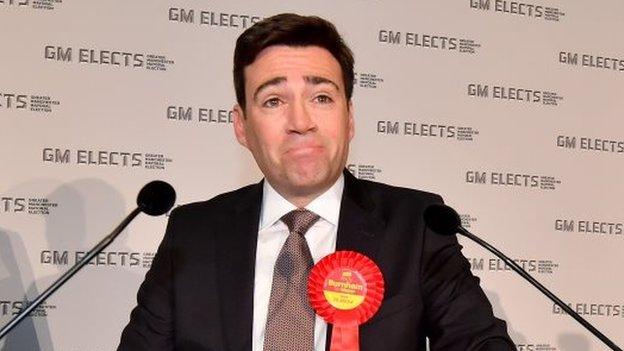
Voters in the West of England, Greater Manchester, the Liverpool City region, the West Midlands, Tees Valley, and Cambridge and Peterborough have elected "metro mayors" covering combined local authority areas.
The Conservatives have won four out of six new mayor posts.
Former Labour cabinet minister Andy Burnham won Greater Manchester with 63% of the vote - hailing it as a "new era" in British politics - and Steve Rotherham won for Labour in Liverpool.
In the West Midlands, Conservative Andy Street, a former John Lewis boss, beat former Labour MP Sion Simon, and the Tory candidate Ben Houchen won Tees Valley, a traditional Labour heartland.
The mayors will mostly be responsible for economic development, but some will have powers over transport and housing.

What happened in Scotland?
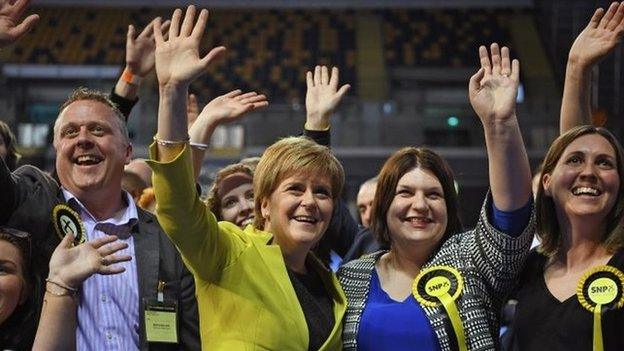
The SNP has replaced Labour as the biggest party in Glasgow, but fell short of a majority.
And despite also replacing Labour as the largest party in Aberdeen, and finishing as comfortably the biggest party across the country, the SNP lost overall control of Dundee and Angus councils - the only two areas where it had won majorities in 2012.
It was a strong night for the Conservatives, who increased their number of councillors by more than 130, including in areas that had previously been "no-go" for the party.

What happened in Wales?
It was a mixed picture for Labour in Wales, where it has been the dominant force in local government for decades.
It lost 13 councillors in Bridgend, meaning it has conceded control of a council where it had three-quarters of councillors just five years ago.
And Labour's losses in Blaenau Gwent and Merthyr Tydfil now mean that independent councillors outnumber all the other parties combined on those two councils.
Merthyr Tydfil's Labour leader Brendan Toomey, among those to lose his seat, said the party was "having a very disappointing evening to say the least".

What's your reaction to the results? Tell us who you voted for and why by emailing haveyoursay@bbc.co.uk, external.
Please include a contact number if you are willing to speak to a BBC journalist. You can also contact us in the following ways:
WhatsApp: +447555 173285
Tweet: @BBC_HaveYourSay, external
Send pictures/video to yourpics@bbc.co.uk, external
Send an SMS or MMS to 61124 or +44 7624 800 100
- Published4 May 2017
- Published5 May 2017
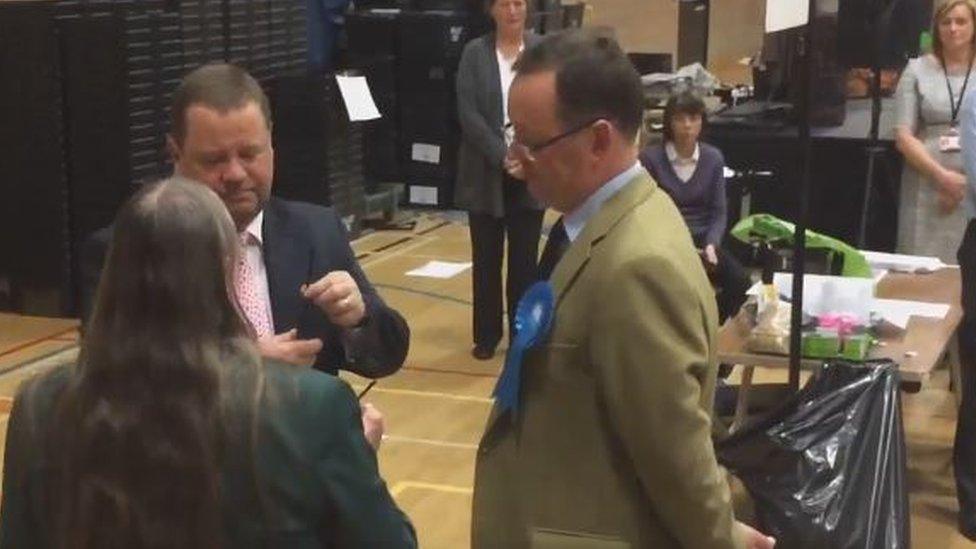
- Published5 May 2017
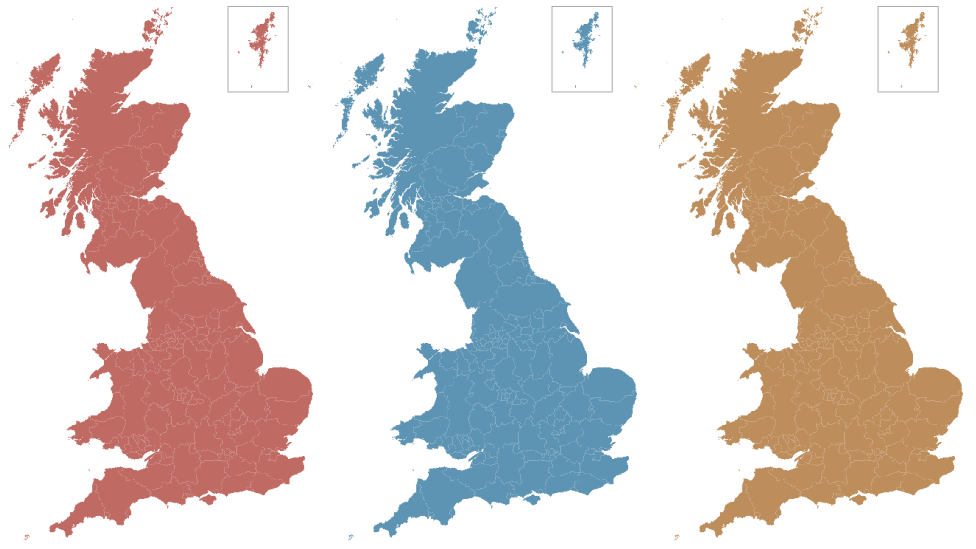
- Published3 May 2017
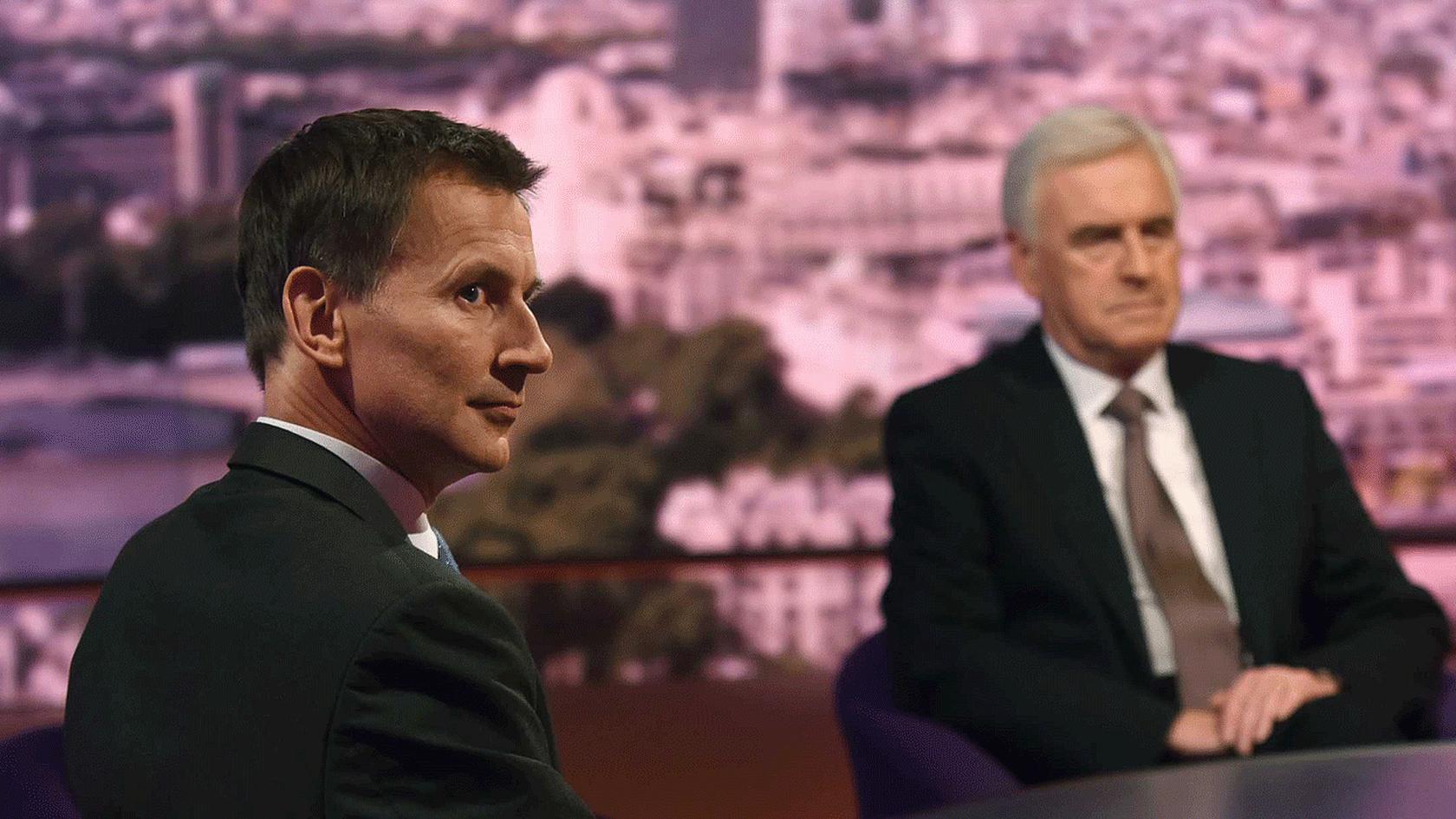
- Published3 May 2017
